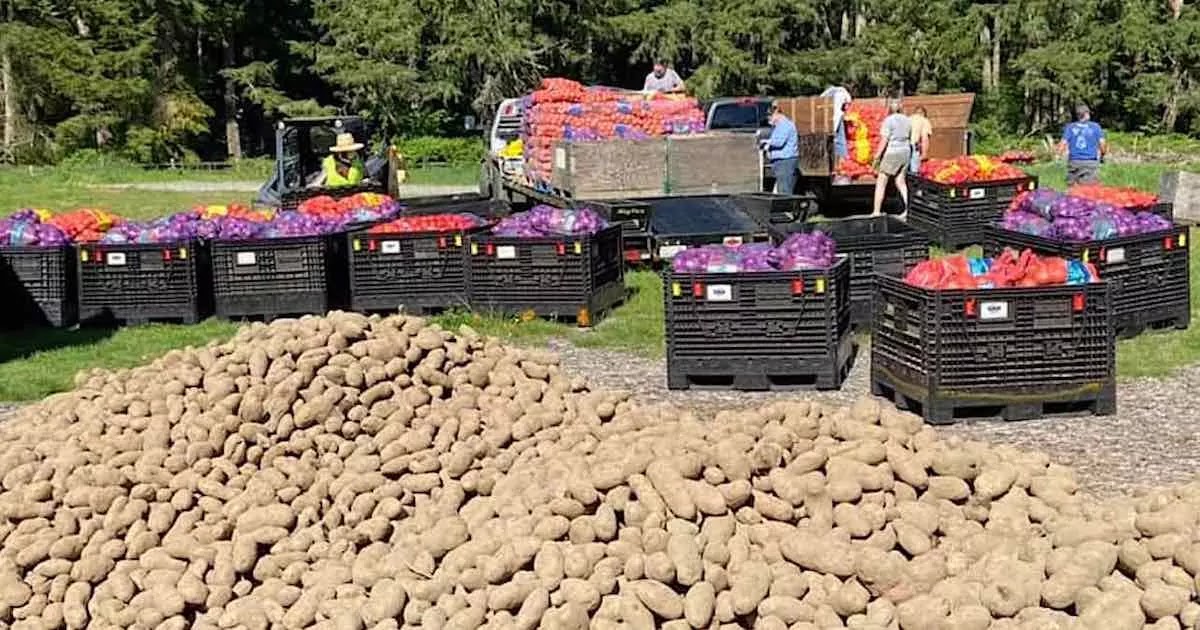
It has been widely reported that many agricultural and food production businesses have been missing out on a lot of their normal sales due to the CoVid-19 pandemic and, as a result, a lot of produce has been going to waste. Key sectors include beer and milk producers, primarily because of their short-shelf life.
This situation has resulted in some companies either destroying perfectly good produce, or, just giving away their goods for free to anyone who wants them. This was the case for a number of farmers in rural Washington state in the United States, but when George Ahearn heard that these farmers couldn’t get rid of their potatoes and onions, he knew that a solution had to be found.
George, knowing that many hungry people were in desperate need of assistance, organised the transportation of 200 tonnes of potatoes, onions and other veg from the farms to foodbanks across the state. Working on nothing but determination and the goodwill of those who lent the use of tractors and trailers, he and some friends were able to pick up the vegetables and get them to the foodbanks.
The farmers were even more thankful when he set up a thank you page where people were able to tip farmers for their kindness in giving their produce directly to George.
Nancy Balin, who is one of the volunteers helping George, spoke of the project to the Seattle Times, saying:
"The whole thing started because of COVID. They immediately lost all the restaurant contracts they had for these quality potatoes and onions. And since European countries were shut down, they weren’t exporting them because their restaurants were closed. The whole thing was extremely organic and took on a life of its own almost immediately."
The project is now a group activity and has ten full-time volunteers helping the hungry across the state. The ultimate goal is to save 5,000 tonnes of food and raise a quarter-of-a-million dollars for farmers left out of pocket.
This is just one of the countless actions by individuals across the world who have come together to help the less fortunate who have either been affected by CoVid-19 itself, or the economic consequences of the pandemic.












COMMENTS